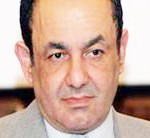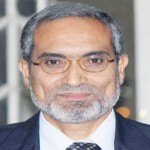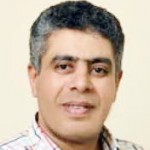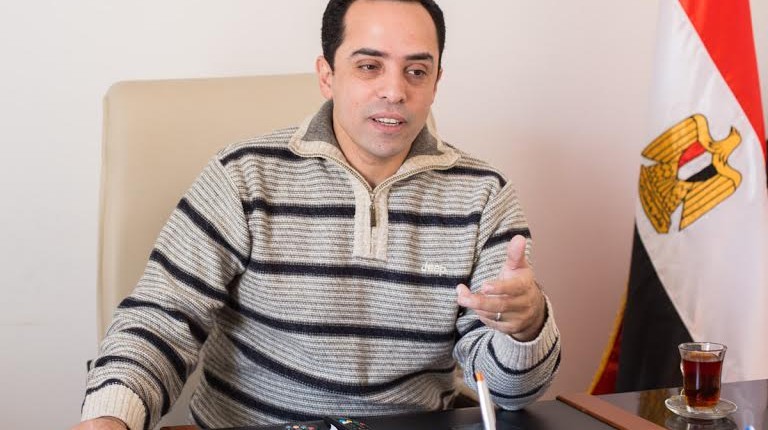Before President Mohamed Morsy had issued a new constitutional declaration to repeal his old one, columnists continued to analyse the “million-man” marches that were organised in front of the presidential palace. Other writers denounced Morsy’s authoritarian approach in curtailing the judiciary.
A president for the whole group
Amr Al-Shobaki
Al-Masry Al-Youm newspaper

President Morsy’s last public speech reflected the wide gap between the mentality of Egyptians and the Muslim Brotherhood, Al-Shobaki argued. Morsy exploited those injured and killed in the revolution to issue a constitutional declaration that violated the basic principles of democracy.
The columnist argues this is not limited to one wrong decision made by Morsy. It is rather his attempt to dominate almost all the country’s institutions, including the judiciary. Al-Shobaki denounces the Muslim Brotherhood’s manipulative sacking of the ex-prosecutor general by issuing the 21 November constitutional declaration.
According to Al-Shobaki, the last declaration contributed to Morsy’s detachment from Egypt’s other institutions. He has failed to persuade revolutionary groups that his decrees really defend the 25 January revolution and its goals. Comparing the situation to the Mubarak era, the writer states that although the former president has stepped down, all the country’s institutions continue to be loyal to him. Morsy, on the contrary, has disrupted the work of almost all the country’s major establishments, although the people elected him.
Al-Shobaki asks if Morsy will remain steadfast amid the ‘peaceful’ marches organised against him in front of the presidential palace. Or if he will be wise enough to back off, even if that conflicts with the desires of his Islamist group? Only time will tell, he says.
Luck comes to those who deserve it
Helmy Al-Gazzar
Al-Masry Al-Youm newspaper

There is no doubt that the constitutional declaration has caused extreme polarisation between political groups, Al-Gazzar states. The streets have become a battleground for Islamists versus non-Islamists. However, throughout the difficult past few days, Al-Gazzar recognises the presidency’s efforts to end the turmoil.
Vice-President Mahmoud Mekky has postponed the constitutional referendum for Egyptian expatriates and implied that the referendum in Egypt could possibly be delayed as well. Before Morsy met political and legal experts for a dialogue session, Mekky eased the situation by stating that the president might issue a new constitutional declaration to repeal his old one to end the growing division in the country.
Al-Gazzar acknowledges the presidency’s initiatives to solve the crisis and believes that the turn has now come for opposition groups to take steps forward with Morsy. The writer calls on the National Front for the Salvation of the Revolution to make the most of this opportunity to lead the country to a safe harbour. Addressing his readers, Al-Gazzar says that Egypt has previously managed to overcome harder situations and has paid a high price to history. Egyptians should now repeat their historic achievements to save the nation, Al-Gazzar concludes.
Emad Al-Din Hussein
Barricades and barbed wire
Al-Shorouk Newspaper
Hussein warns that a “social disintegration monster” has been unleashed following Morsy’s constitutional declaration. Observing the way different political groups have been controlling certain areas of the capital, maintaining popular committee checkpoints, and violently interrogating those with other political views, Hussein believes that the role of the state is being gradually eroded. He recounts how Muslim Brotherhood militias detained some of their opponents before handing them to the police.
Muslim Brotherhood supporters are now in control of the Rabi’ah Al-‘Adawiyah Square, Salafis are encircling the Media Production City and the Supreme Constitutional Court, inciting anti-Morsy demonstrators to seize Tahrir Square. To Hussein, temporary concrete barriers in Qasr Al-Eini Street and Mohamed Mahmoud Street have now turned into a phenomenon extending to the gates of the Presidential Palace.
To Hussein, they bear an uncomfortable parallel to similar barriers that accompanied sectarian conflicts in Lebanon and Iraq; a fate Hussein does not wish to see re-enacted here, especially given the current unprecedented level of political and sectarian tension.
Ahmed Al-Sawi
On crystal clear righteousness
Al-Shorouk Newspaper
Al-Sawi expresses his astonishment with the Muslim Brotherhood, who did not believe actor Talaat Zakariah when he accused demonstrators in Tahrir Square during the 18-day uprising of fornicating and drug use. Now the Muslim Brotherhood is claiming to have seen this themselves in the tents at the Presidential Palace.
He recounts how Muslim Brotherhood supporters displayed contraceptive pills they claimed to have found in the tents. He doubts they were ignorant of the events Zakariah described during the revolution. He believes they chose to remain silent and even accept these practices for the sake of ousting Mubarak, in the hopes of establishing their own rule after his overthrow.
Al-Sawi wonders how the Muslim Brotherhood did not believe General Omar Suleiman’s warnings that the January revolution served foreign agendas and was funded by media tycoons. It took them two whole years to buy into Suleiman’s theories, but now they have imposed restrictions on satellite TV channels and encircled the Media Production City to demand the “purification” of the media.
Even the ex-National Democratic Party’s accusations that revolutionaries were being paid in KFC meals are being repeated by Islamists, but this time opponents are accused of receiving supplies of La Vache Qui Rit cheese.
It became even more shameful to Al-Sawi to see the Muslim Brotherhood finally realising that the pro-Mubarak demonstrators on the day of the “Battle of the Camel” only wanted to demonstrate peacefully, and that it was only the friction with their opponents that caused the casualties. Al-Sawi concludes that the Muslim Brotherhood did not believe any of this until they did it themselves.





